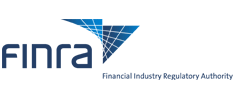
FINRA Fines Citigroup $650,000 for Direct Borrow Program Deficiencies
First Action involving a Stock Borrow Program Cites Disclosure and Supervisory Failures
Washington, D.C. — In its first enforcement action involving a broker-dealer stock borrow program, the Financial Industry Regulatory Authority (FINRA) announced today that it has fined Citigroup Global Markets, Inc. $650,000 for disclosure and supervisory violations relating to the operation of its Direct Borrow Program (DBP).
FINRA's investigation found that between Jan. 1, 2005, and Nov. 30, 2008, Citigroup's DBP borrowed fully paid hard-to-borrow securities owned by the firm's customers, who were in large part retail customers. The borrowed securities went into a pool of securities used, among other things, to facilitate Citigroup's clients' short-selling strategies. The DBP arranged for more than 4,000 loans involving more than 770 different securities borrowed from more than 2,300 customers. The average annual value of outstanding loans from customers was approximately $301 million.
FINRA found that Citigroup failed to disclose, or to adequately disclose, certain material information to customers participating in the DBP, including that the securities were hard-to-borrow; that the interest rates could be reduced by the firm; that the brokers received commissions for the duration of the loan; that while the securities were on loan, dividends were paid as "cash-in-lieu" of dividends and were therefore subject to higher tax rates; and, that shares on loan could be sold by the customers at any time.
"Before offering a product to customers, brokerage firms must reasonably ensure that the customers are aware of all of the potential risks associated with the transaction," said James S. Shorris, FINRA Executive Vice President and Executive Director of Enforcement. "In this case, Citigroup failed to maintain a supervisory system that ensured that such disclosures were made to customers by the firm's registered representatives and in the firm's marketing materials."
FINRA found that the DBP operated without a system or procedures specifically designed to supervise the activities of the DBP staff and the firm's brokers and to adequately monitor the accounts of customers who participated in the DBP.
Branch managers and supervisors were not notified that customers of brokers they supervised were participating in the DBP. FINRA found that many of the firm's branch managers and other supervisors were not even aware that the DBP existed. In addition, the traditional tools that were available to branch managers and other supervisors to monitor customer accounts were compromised when shares were lent through the DBP. Because a customer's account no longer reflected the customer's position in the security when the shares were lent through the DBP, exception reports – such as concentration reports and account market value loss reports – no longer captured the customer's account even if it became overly concentrated in the security or lost a significant amount of market value due to the lent security's loss in value. Therefore, the firm's ability to supervise values of positions, concentration levels, and on-going appropriateness of the loan transaction for the customers was compromised.
FINRA also found that Citigroup distributed three versions of marketing materials to the public regarding the DBP that were not fair and balanced and did not provide a sound basis for evaluating the facts in regard to the DBP. The marketing materials contained misleading statements that there was very little risk associated with the DBP, that no customers suffered any losses and that the firm tried to avoid interest rate changes as much as possible.
Citigroup suspended all new borrows through the DBP on Nov. 30, 2008 and, as of the date of the settlement, had returned all shares to customers who had lent through the DBP.
In concluding this settlement, Citigroup neither admitted nor denied the charges, but consented to the entry of FINRA's findings.
Investors can obtain more information about, and the disciplinary record of, any FINRA-registered broker or brokerage firm by using FINRA's BrokerCheck. FINRA makes BrokerCheck available at no charge. In 2009, members of the public used this service to conduct 18.5 million reviews of broker or firm records. Investors can access BrokerCheck at www.finra.org/brokercheck or by calling (800) 289-9999.
FINRA is the largest non-governmental regulator for all securities firms doing business in the United States. FINRA is dedicated to investor protection and market integrity through effective and efficient regulation and complementary compliance and technology-based services. FINRA touches virtually every aspect of the securities business — from registering and educating industry participants to examining securities firms; writing rules; enforcing those rules and the federal securities laws; informing and educating the investing public; providing trade reporting and other industry utilities; and administering the largest dispute resolution forum for investors and registered firms.
For more information, please visit our Web site at www.finra.org.
